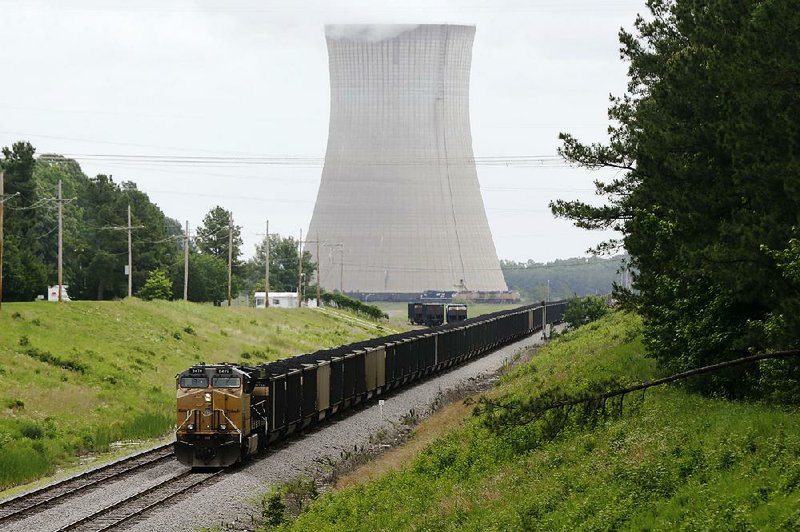Arkansas Attorney General Dustin McDaniel has asked the U.S. Environmental Protection Agency to consider the “unique” problems Arkansas will face with the implementation of the Clean Air Act.
In a three-page letter to the EPA’s legal counselor Avi Garbow on Monday, McDaniel outlined six points he said would make it difficult for Arkansas to be in compliance with the federal government's plan to reduce carbon dioxide emissions by 2030.
McDaniel mainly focused on the lack of time and infrastructure Arkansas has to meet the goals of the plan, which requires the state to meet a 45-percent reduction in carbon emissions by the 2030 deadline. McDaniel said it would be the sixth-highest reduction of carbon emissions in the nation and noted that Arkansas is 46th in the nation for per-capita income. With such a high reduction, McDaniel said he was concerned with how increased utility rates would affect low-income people.
McDaniel said Arkansas especially will face price spikes with the new regulations because of the quick change from coal to natural gas that the agency expects of electric companies. He said the EPA did not calculate correctly how many watts of power the Natural Gas Combined Cycle can produce, as it is currently used only as supplemental power when the coal plants cannot handle the load.
McDaniel said such a fast switch could raise utility prices anywhere from 10 to 30 percent.
Arkansas also uses a regional planning system as opposed to state electric company. This means there are two different regional transmission organizations that coordinate how energy is controlled and monitor electricity transmission grids. These two organizations must work together to figure out how to implement these new rules from the EPA. McDaniel said the two years the EPA has allotted will not be enough time to organize two different regional transmission organizations.
The renewable and energy-efficient goals set out by the EPA do not take into account the fact that Arkansas is a poor candidate for wind and hydroelectric power, according to McDaniel. The EPA requires each state to begin producing the power themselves, and McDaniel said it would be more efficient and cost effective for Arkansas to buy wind power from neighboring states.
In the letter, McDaniel requests 60 more days to comment on the plan proposal, at least another year to submit a state implementation plan, two years for the regional transmission organization plan and an extension to 2025 for the interim goal frame, which would push the final goal from 2030 to 2035.
“Compliance will be much less burdensome if the EPA allows the states a glide-path instead of a cliff,” McDaniel said.
The Obama administration at the beginning of June rolled out the new plan in an attempt to cut the carbon pollution from the nation’s power plants by 30 percent. Since then, Arkansas officials have been struggling to figure out how to meet the goals of the plan, as environmentalists and critics of the proposal have said the state will be facing more burdens than most states.
Read Tuesday's Arkansas Democrat-Gazette for more on this story.
READ MORE:
http://www.arkansas…">EPA rolls out power-plant carbon ruleshttp://www.arkansas…">Emissions goal bigger for state: Arkansans to pay, critics sayhttp://www.arkansas…">Justices largely back EPA rules on carbon gashttp://www.arkansas…">Entergy exec: EPA rules dire for coal


